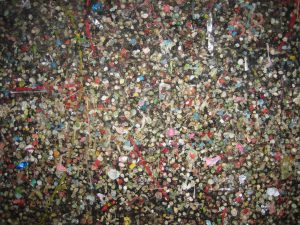 I've written before about how RSS feeds and website content syndication can make a big difference in how you take in content online. If you haven't played around with a feed reader service or tool (like Google Reader), you should really give it a try.
I've written before about how RSS feeds and website content syndication can make a big difference in how you take in content online. If you haven't played around with a feed reader service or tool (like Google Reader), you should really give it a try.
But now it's time to explore the darker side of RSS feeds (or, for those of you stuck in the 1990s, web browser bookmarks): despite making your continued content consumption more efficient, it's still too tempting to subscribe to too many of them, and once again have too much "clutter" in your electronic life.
My own feed reading list ranges between 100-200 feeds at any given time (thanks NetNewsWire for making this easy!), and I've had to be very intentional about keeping the list that "small." So, in hopes of helping you prevent RSS feed frenzy, and perhaps to learn about some of your techniques for the same, I present "5 reasons to ditch an RSS feed":
- The feed duplicates content you're getting elsewhere. If a website's feed is presenting information that you will also find out about via e-mail, printed memos, casual web browsing, water cooler chat or otherwise, choose one and get rid of the others. Even if the feed presents the information slightly differently (e.g. a Slashdot summary with inane commentary), you may still just be extracting the same key information from it as you will from other sources, and you can always find additional perspectives/presentations on the information later.
- You always find yourself skipping over the feed's contents, marking it as read. It's tempting to feel like having a feed in our RSS reader is the same as keeping up with the activity on that information source, but if you just gloss over it every time to get it out of the way, you're not saving yourself any time and you're not gaining much. (This often happens when you find one interesting post on a blog, subscribe, and then find that the author was a one hit wonder.) If this phenomenon goes on for weeks or months, unsubscribe from the feed and just move on.
- The feed is a distraction from how you really want to spend your time. We all need to have some variety in our day, and including a few sources of humor, distraction or whimsy in your web browsing doesn't hurt anything. But if you have a significant number of feeds that you know are taking up your time with frivolous things that keep you from doing the things you really want to in life, it's time to get rid of them.
- The feed is a dinosaur. Most feed readers know how to tell you when a given subscription hasn't had any new content for a long time. For some site content, this is okay - if a software project only announces new releases every couple of months, why not have a feed that precise in its utility and is otherwise dormant? But if the content creators have clearly dropped off the face of the Earth and you're not invested in knowing if/when they return, unsubscribe and move on. It saves a little bit of computing and network resources, and it keeps your subscription list focused on content you're actually engaged with.
- The feed makes you angry. Or depressed. Or stressed out. It's one thing to challenge yourself with interesting and thought-provoking content, but it's another thing entirely to expose yourself to information on a regular basis that you know is going to have a soul-destroying effect on you, just because you think you want to feel in the loop or know what latest injustices are out there. Our time online (and on the planet, for that matter) is limited and will hopefully be spent doing things that allow us to grow, learn, contribute useful things to our communities, connect with others, find joy and beauty, and so on. The negative stuff will find you just fine, no need to invite it onto your screen any sooner than that.
I hope those criteria are helpful if you find yourself a little overwhelmed by an unruly RSS subscription list; I welcome comments. And if you have other criteria that you use for subscribing to or unsubscribing from a feed, I'd love to hear them.
 I’m a journalist, publisher, software developer and entrepreneur with experience as a founder and organizational leader. Work with me or learn more about me.
I’m a journalist, publisher, software developer and entrepreneur with experience as a founder and organizational leader. Work with me or learn more about me.
At Blogher this weekend, many people said they no longer have a reader. They all just click through things on Twitter if it sounds interesting.